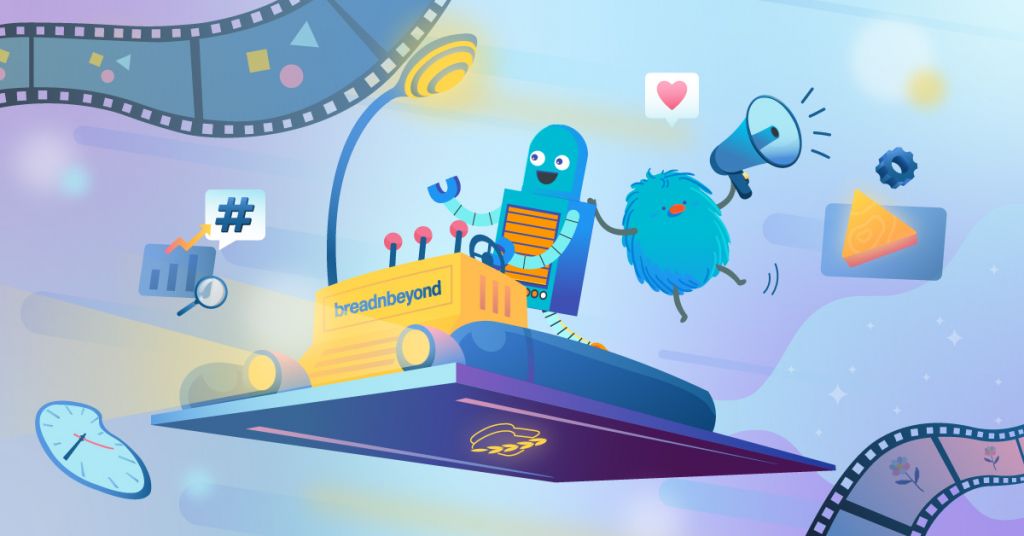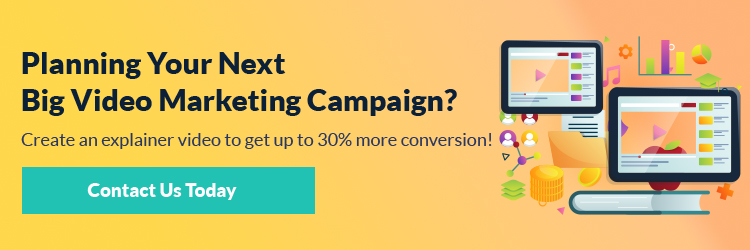
Last night, I watched a downhill bike competition video on YouTube. In the middle of it, I found out it was sponsored by Red Bull.
It’s funny because earlier yesterday I saw another dirt bike race on my cable TV sponsored by the same brand. (I found out later it was also uploaded to YouTube by Red Bull.)
Then I realized that some brands are owning the advertising game in this age of technology.
Technology is almost inseparable from our daily lives. (Think smartphones, laptops, PCs, LED TVs.)
It’s amazing how people (including me) are so immersed in the advertising game that nobody even notices that they’re in the game.
But how are they showing these advertisements in our daily lives without us noticing it?
That’s exactly what I’m going to tell you in this post.
Video advertising using modern tech is not that hard. It’s all about utilizing what’s already invented and publicly available with pieces of tech, and you’re on your way to amazing marketing results.
Here are some of my tips for making your video on par with the next level of ads.
1. Optimize Your Video for as Many Devices as Possible
What was the longest amount of time you went recently without seeing videos online or on your screen? My money’s on anything less than a day.
We are in an age of technology when almost everything has been displayed, even something as peculiar as a fridge.
Classes are taught using video because it’s more entertaining than plain text.
Many meetings by business partners on different continents happen through Skype, or any conference video call program for that matter. It’s more efficient in terms of time and resources.
Salespeople can sell their products from the comfort of their work desks, communicating through their 21” LED desktop displays and 6” smartphones.
Video is now fused with our lives.
It’s because videos make our lives simply easier. Instead of repetitively explaining your product to different prospective clients or customers, you can now record one explanation of your product and show it again to prospective clients in the future.
For marketers, this should be a gold mine. With all of the devices with video-playing features, reaching prospective customers is right at their fingertips.
To cope with the new gadgets coming out nearly every month, your video has to be playable on multiple devices which sometimes support different formats. Some of the most common formats (playable across different platforms) are: MKV, MP4, AVI, and . FLV
If you want to do this the easy way, you can always find a website or service that will transcode and convert your video to any format supported by the viewer’s device. These services allow you to easily do that: YouTube, Wistia, and Vid.ly.
Not only they can convert videos for you, they also make your video available in different resolutions on the go, detect the best resolution and format for your current device, and make sure the video can be played properly.
That way, viewers can conveniently watch your video with whatever devices they are using.
If you’re planning to publish your video to YouTube, we have 4 Tips to Create Killer YouTube Thumbnail that should come in handy for you.
2. Live Stream Videos
When the ol’ upload-and-download edited video gets common and dull, the world of video advertising turns to live to stream.
Periscope, Snapchat, and Meerkat are the rising stars of video live-streaming platforms. Periscope, however, wears the crown.
Aside from its popularity for business purposes and people in general, big brands also use Periscope as a marketing platform. Those brands, among others, are:
– RedBull
When there’s a new trend in advertising, you can expect Red Bull to be in the front seat of the hype train. They live-streamed a bit of their Guest House events.
– Adidas
During the World Cup 2014 in Brazil, Adidas did a web series of live-stream published on YouTube. The series was called The Dugout and it was revolutionary for Adidas’s YouTube channel from the soccer perspective.
As you may have noticed, the videos Red Bull and Adidas live-streamed weren’t exactly part of a product boasting campaign.
They show you what it should be like to be involved in a certain industry: Adidas with their major involvement in the sports industry (soccer, in this case), and Red Bull with their energetic and young vibe as always.
3. Live Q&A
From a customer service point of view, live Q&A could mean a lot more than it sounds.
Having regular (weekly, monthly, etc.) Q&A session with your customers is one way to humanize your brand without much hassle.
Live Q&A, when executed well, also proves to your customers that your company is really good at handling spontaneous questions and issues from customers.
4. Behind The Scenes Video
Behind-the-scenes videos are always interesting for your customers. Some of your customers probably have been dying to know how you manufacture your products.
It’s applicable to most industries, even if your products aren’t physical.
For example, in the animation industry (with no physical product), you can stream the process of making the animation to your audience.
If you don’t have enough of an audience hooked into your live stream, you can always upload the recording to YouTube and get more views that way.
5. Produce Customer Testimonials, Explainer Videos, and Tutorial Videos
Customer testimonials and reviews have always been the best bet for companies, whether they sell services or products. It creates trust, and trust is important in the online marketing world.
Ascend2 conducted a survey on video marketing with 280 participants consisting of marketers and sales and business professionals from around the world. The survey found that the most effective type of video content is customer testimonials, with 51% of participants voting for it.
However, they also found that producing a customer testimonial video is harder than making an explainer video or tutorial video.
It’s because customers aren’t always willing to spend their precious 1 or 2 hours to record a testimonial video.
Unsurprisingly, explainer videos and tutorial videos are nearly as effective as testimonials. This survey has proven that despite the fact that explainer videos are much more accessible compared to customer testimonial videos (only 29% of marketers find them difficult to produce), they still have an impact comparable to that of (1% less effective) customer testimonials.
With the data gathered from professionals, the survey proves its usefulness for marketers and business owners in making better choices in the future for their video advertising plans.
Takeaways
- Analyze the devices used daily by your audience and optimize your videos for them.
- Broadcast casual videos and Q&A sessions regularly through Snapchat, Periscope, Meerkat, etc.
- Explainer videos are highly accessible with impacts comparable to those of testimonial videos.
So, have you got any plans for the content of your next video? Let me know in the comments.
